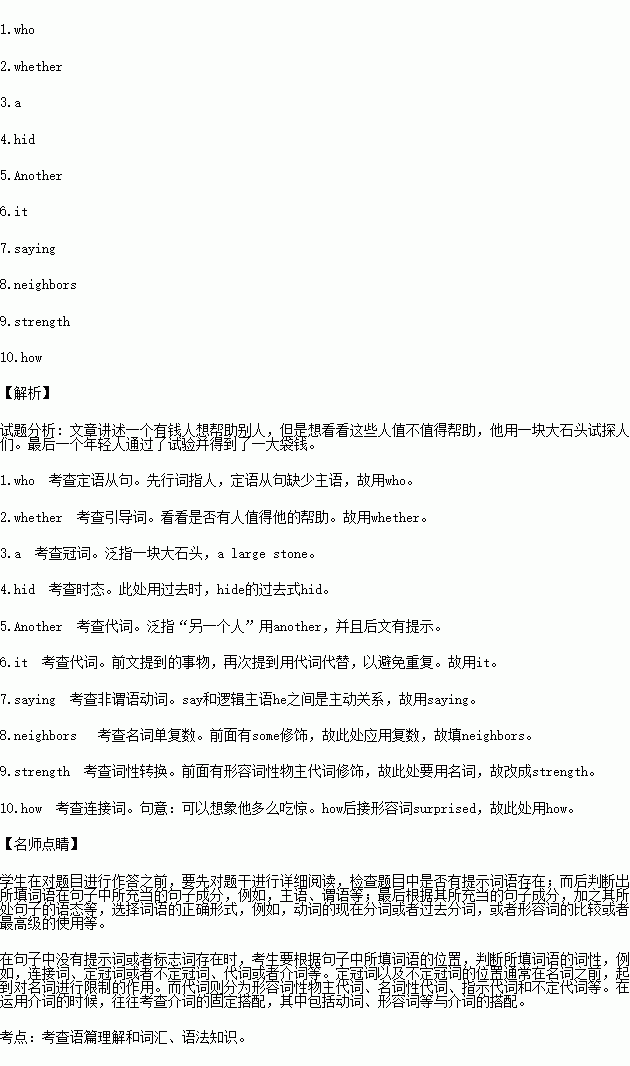题目内容
阅读下面材料,在空白处填入适当的内容或括号内单词的正确形式。
Once there lived a rich man, __1.__ wanted to do something for the people of his town. But first he wanted to find out ___2.__they deserved his help.
In the center of the main road into the town, he placed __3.__ very large stone. Then he __4.__(hide) behind a tree and waited. Soon an old man came along with his cow.
“Who put this stone in the center of the road?” said the old man,but he did not try to remove the stone. Instead, with some difficulty he passed around the stone and continued on his way. __5.__ man came along and did the same thing; then another came, and another. All of them complained about the stone but not tried to remove __6.__. Late in the afternoon a young man came along. He saw the stone,__7.__(say) to himself: “The night will be very dark. Some ___8.__ (neighbor) will come along later in the dark and will fall against the stone.”
Then he began to move the stone. He pushed and pulled with all his __9._(strong) to move it,only to find a bag of money under the stone. Imagine ___10.___ surprised he was!

